Gardening is a wonderful past-time enjoyed by millions around the world. We feed ourselves with it, work long hours on our hands and knees to produce our bounties, and do everything we can to make sure that what we’re growing is safe.
Ah, but that’s the trick, isn’t it? Making sure that everything we have is safe is difficult once we’re left to our own devices. Though this article does not cover every possible issue you may run into, it covers a few key problems that have left gardeners injured, poisoned, or worse. Let’s take a look.
Collecting Seeds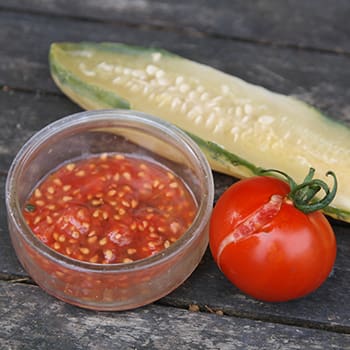
Though it is very rare that you’ll go wrong collecting seeds from common varieties of fruits and vegetables that you buy from a grocery store (though the variety may look odd when grown out at home) or from your own plants, finding seeds in the wild or buying them from unchecked online sources can lead to disaster.
Early in the covid-19 pandemic, many people turned to gardens as a way to pass the time through lockdowns and quarantines. Understandably, this puts a heavier load than usual on the request for plants, seedlings, and, of course, seeds. During that time, many people got taken advantage of. From some just going out in the woods and stripping unknown, wild plants of their seeds and posting them on Amazon as vegetables, or others deciding to forage themselves, many new gardeners were presented with poisonous plants and other things that we simply do not consume.
Essentially, if you desire to have a garden and you are new at the hobby, get your seeds from clearly marked packages from well-known and long-trusted companies.
⇒ Click Here To Get The 10 Medicinal Plants You Need To Have In Your Backyard
The Wrong Pest Control or Fertilizer
How many of you have been told “oh just spray some Windex on that bug” or what have you? Raise your hands. Yes, yes, I can definitely see you through this article. Don’t worry, we’ve all been told some terrible advice. Whether it’s pest control or, in some cases, fertilizer, a lot can go wrong when you start putting additives in your soil without knowing what you’re doing.
Perhaps the one thing I point at the most is horse manure. Many people use it for fertilizer on their plants without a second thought, but caution is needed. There are certain things in horse manure that “age out” into the soil as it breaks down. Sixty days after the manure is spread (in typical weather) makes the food safe to eat, but eating it beforehand can have serious consequences for your stomach, kidneys, and liver.
How to Attract Snakes and Spiders
We all know that a good garden is a good friend to all wildlife. We want to protect our crops, but we don’t want to be bitten by a rattlesnake or have a spider sink its fangs into us, if at all possible.
So, how do we avoid these pests getting into our gardens?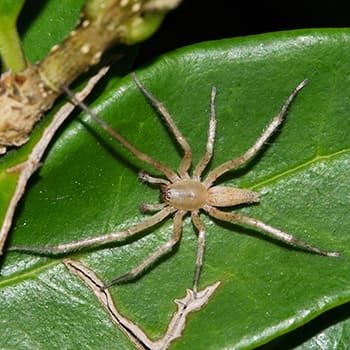
Snake fencing is very expensive, but it works. Some say that neatly trimmed plants kept up and away from the ground will keep snakes away, but I disagree. In my experience, it only gives you a warning that the animal is there and trying to cool off after basking in the sun for a bit. Sure, the snake will either flee or tell you to back off. You may get more warning, but the snake is still probably going to be there.
Moth balls are also a complete lie. Do not use these. They are poison to most animals (including you if you’re exposed to them enough) and snakes don’t “smell” the same way that we do. They don’t keep snakes out of your yard.
Instead, try to use a snake fence. If that’s impossible, a single line of electric fencing near the ground will prevent snakes from coming in, though it may kill them if they are particularly stubborn about it.
Spiders are wonderful to have in the garden, but we do want to avoid some of them. Black widows and brown recluses are common in my area and we keep them away simply by spraying a little vinegar along the ground. The spiders hate this scent and seem to flee from it. We spray daily.
Related: How To Attract Toads and Frogs to Your Garden (And Why You Should Do It)
Killing Your Pets With Your Plants
Perhaps one of the most deadly mistakes that pet owners have made in the past couple of decades was installing a pretty, bushy little palm plant that murdered their cats, dogs, and hundreds of thousands of other wildlife. Marked that it was poisonous to pets? Are you kidding? Of course not.
The sago palm is a brushy palm bush that is incredibly toxic to anything that ingests it. This includes the fronds, husk; any part of the plant, but especially the seeds. The seeds are so toxic that most animals don’t even make it to the emergency vet before the seizures the plant causes kill them.
Related: If You Have Pets, Get Rid Of These Plants Immediately!
There are far fewer exotic plants that kill our pets and endanger others, too. Apple trees are beautiful, but too many apple seeds will kill most dogs and cats. This means that orchard owners must be incredibly careful about picking up dropped fruit and harvesting what they can as soon as they can to protect the animals in the orchard. This goes for all stone fruit (peaches, plums, cherries, etc.) and vines such as grapes, which kill most household pets other than birds.
Check in with your vet before you plant anything new on your property. Most plants have risks that can be mitigated, but not all of them should be kept in close proximity to you or your animals (or your kids, for that matter).
⇒ This Bug Will Kill Most Americans During The Next Crisis
Ferreting Out Other Concerns
There are a plethora of apps that allow you to check the identification of a plant growing in your yard. If you have concerns, I recommend using your smartphone to check absolutely everything. All of them. Constantly.
A good for instance happened on my own property. A strange, dark-stemmed plant was jutting from under a tree. Our dogs thought it smelled incredibly interesting and were very interested in its small, blackberries. A quick check with my phone identified it as nightshade. How did it get here? I assume a bird dropped a berry and it sprouted, or it was spread the natural way. The plant was removed and no one was poisoned.
However, without being diligent, it could have been so much worse. This is simply how things work when you are gardening. Identify your plants as much as you can and if you are uncertain, do not use the plant in question and remove it from your garden for safekeeping.
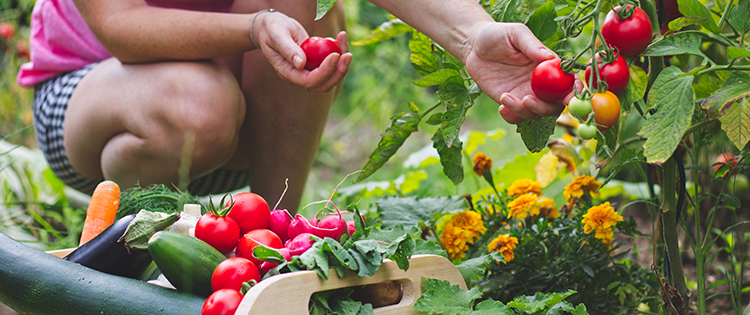

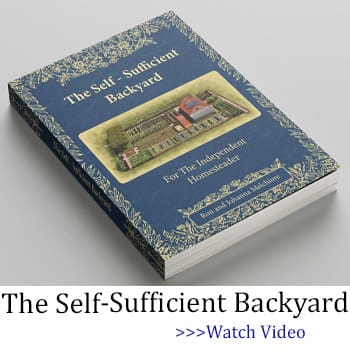

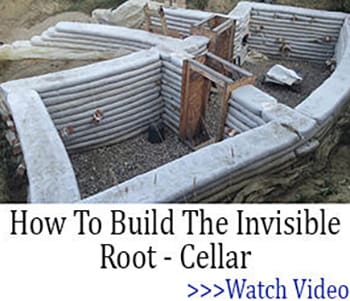
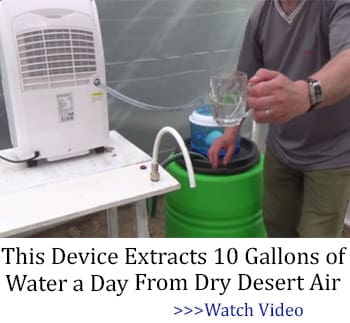
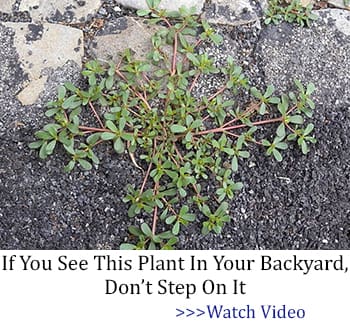
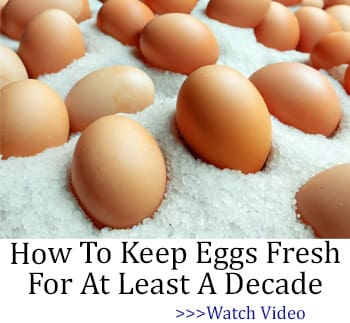

I’ve heard that a line of sulfur will stop snakes from crossing over it. Is this true?
Lol so people who garden up into their 80s like my Dad could compete with the shortening of their telomeres with natural vegetation tenderly cared for. Have not heard any local gardener stories of death by garden but maybe it is a well kept secret. 🙂
My brother died at age 56 from a bacteria that is in the soil. He was an avid strawberry plants gardener that breathed it and it settled in his lungs. Sometimes it settles in other areas of the body but if it’s the lungs, and IF it is diagnosed quickly for treatment there’s only a 50% chance of survival. They first diagnosed it as pneumonia and by the time testing came back to reveal it was mucormycosis, it was too late.
After 30+ years of farming, I have found that animals will not eat poisonous plants in enough quantity to sicken or kill them unless they are starving and the poisonous plant is basically the only food option, or they are severely deficient in a vitamin or mineral that is readily available in that plant. Normally, they may nibble at poisonous plants, but will not eat enough to do any harm. Also, many of the plants that are claimed to be poisonous are not truly poisonous, like poke weed, if it was poisonous my family as well as our entire herd of goats would be long dead! It is true though that an animal or human optimally nutrient saturated will not experience the severe reaction to poisons that a malnourished or even subclinically malnourished individual will.
Poke weed when small makes a delicious Salad. But when allowed to grow large does become poisonous when ingested v